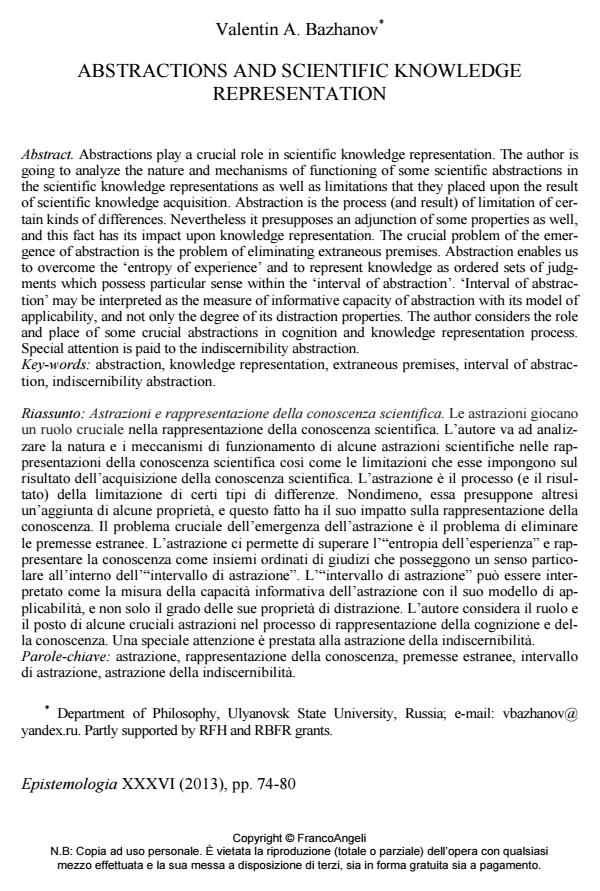Abstractions and scientific knowledge representation
Journal title EPISTEMOLOGIA
Author/s Valentin Bazhanov
Publishing Year 2013 Issue 2013/1
Language English Pages 7 P. 74-80 File size 141 KB
DOI 10.3280/EPIS2013-001005
DOI is like a bar code for intellectual property: to have more infomation
click here
Below, you can see the article first page
If you want to buy this article in PDF format, you can do it, following the instructions to buy download credits

FrancoAngeli is member of Publishers International Linking Association, Inc (PILA), a not-for-profit association which run the CrossRef service enabling links to and from online scholarly content.
Abstractions play a crucial role in scientific knowledge representation. The author is going to analyze the nature and mechanisms of functioning of some scientific abstractions in the scientific knowledge representations as well as limitations that they placed upon the result of scientific knowledge acquisition. Abstraction is the process (and result) of limitation of certain kinds of differences. Nevertheless it presupposes an adjunction of some properties as well, and this fact has its impact upon knowledge representation. The crucial problem of the emergence of abstraction is the problem of eliminating extraneous premises. Abstraction enables us to overcome the ‘entropy of experience’ and to represent knowledge as ordered sets of judgments which possess particular sense within the ‘interval of abstraction’. ‘Interval of abstraction’ may be interpreted as the measure of informative capacity of abstraction with its model of applicability, and not only the degree of its distraction properties. The author considers the role and place of some crucial abstractions in cognition and knowledge representation process. Special attention is paid to the indiscernibility abstraction.
Keywords: Abstraction, knowledge representation, extraneous premises, interval of abstraction, indiscernibility abstraction.
Valentin Bazhanov, Abstractions and scientific knowledge representation in "EPISTEMOLOGIA" 1/2013, pp 74-80, DOI: 10.3280/EPIS2013-001005